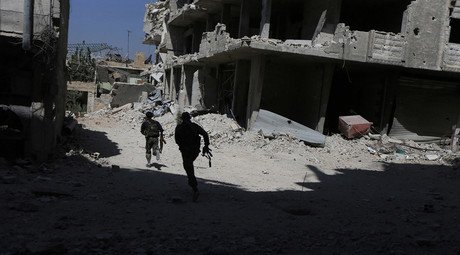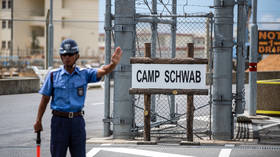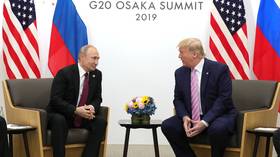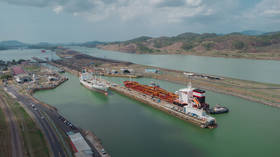‘Alleged IS chemical weapon attacks have more psychological than tactical effect’
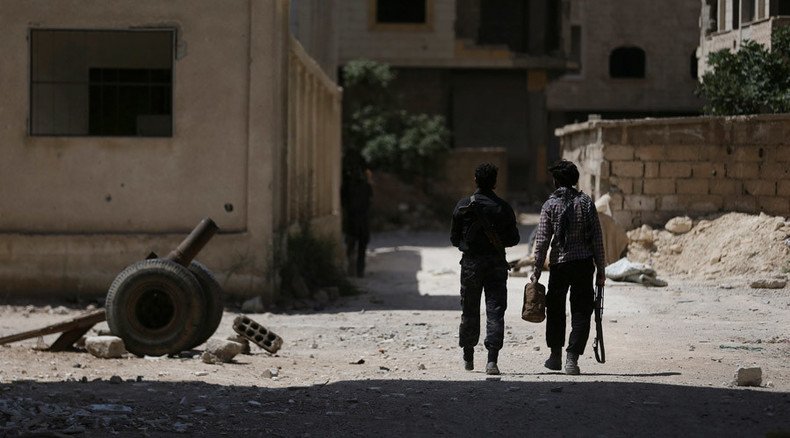
The chemical weapons may have been smuggled over the border from supporters, for example, either via Turkey, or perhaps Iraq. They may have been seized from an old stockpile in Iraq, says Charles Shoebridge, security analyst and former British army officer
According to the report released by the [Organisation for the Prohibition of Chemical Weapons [OPCW] mustard gas was used during fighting between IS and other militant groups in Syria in August 2015.
RT: Where did Islamic State get their chemical weapons from?
Charles Shoebridge: Well, assuming that this was IS - and it seems a fair assumption given the witness statements at that time, and who was allegedly firing these weapons, which have now been confirmed by the OPCW [Organization for the Prohibition of Chemical Weapons] and others to have contained mustard agent. There are a number of possible sources. Some have used IS’s alleged and it would now appear proven use of mustard agent as what they call proof that Bashar al-Assad in Syria did not hand over all of his mustard agent. Of course, al-Assad had mustard agent as part of his chemical weapons arsenal. But the OPCW itself - if you like the worldwide ‘watchdog’ for this area of warfare - has confirmed that by and large certainly Syria has complied with its part in handing over all its weapons. So it is seems unlikely that these substances have come from a Syrian stockpile. They may have been smuggled over the border from supporters - either via Turkey, or perhaps Iraq. They may have been seized from an old stockpile in Iraq. Although, again that seems unlikely given that it’s been a long time since the Iraq war in 2003 after which you would have thought that American and other forces may have detected these stockpiles if they existed.
But another option that is certainly plausible is that they manufacturing, at least in small quantities, this agent itself. Certainly that is the belief I think of many in the international intelligence community, and some in the US intelligence community have gone public with that suspicion that actually IS - with the help perhaps of some outside powers - are manufacturing this in small quantities.
RT: How hard would it be for them to manufacture themselves? How hard is it to get the components necessary to do that?
CS: Well, I don’t speak as a chemical engineer, but certainly it would seem to be the case that given a certain basic level of training, perhaps a basic level of experimentation - and of course with the internet available and also with everyday chemicals - that this substance can be manufactured. It is not as easy to produce as something like chlorine, which has multiple uses, multiple uses in everyday use.
Nonetheless, experts agree that it is capable of being produced in small quantities and indeed even scaled up to large quantities were the facilities to exist. Those facilities - if they are not interfered with, by, for example, action of US-Russian Syrian airstrikes and other assaults - the materials are available, they can be used and this substance can be produced. But it is still questionable the effectiveness to which this can be put in the military context... it is actually the effects on civilians that are most concerning, I think.

RT: Does the possession of the chemicals have a significant effect on ISIS’s tactical approach and also upon how effective they are in combat?
CS: Yes, it is a good question, because generally speaking the kind of chemical weapons that have been alleged to have been used in Syria and in Iraq are not particularly effective in a combat situation. One can take as an exception that of nerve agents that were used allegedly by Assad’s side, but also there are suggestions that it was used by the rebel side in Ghouta in Syria in 2013, when many hundreds of people died. But these kind of weapons are being used on a very sporadic basis in Syria since that incident really are using substances such as chlorine and now mustard agent, and others, which, generally speaking, are not particularly effective and certainly are not effective weapons. They are not battle-field changing weapons, strategy-defining weapons unless they are used in massive quantities. And nobody is suggesting that they have been used in this way, or that there is any capability in producing it.
Nonetheless, there are very fearsome weapons – they have definitely a psychological impact. But the fact remains that for example even these weapons that were used and it’s now been proved by the OPCW to have contained mustard agent back in August of this year. But the likelihood is that had those weapons contained only explosives and shrapnel as do all conventional weapons [non chemical weapons], it is quite likely the injuries and fatalities would have been the same, if not worse. So we do need to keep these claims in context, but also we need to keep in mind the context of the Syrian war, in particular, where for many years there have been claim and counter-claim in a very sophisticated propaganda war as to which side of the many sides in the Syrian conflict, and indeed now the Iraqi conflict as well, are using these weapons.
The statements, views and opinions expressed in this column are solely those of the author and do not necessarily represent those of RT.
